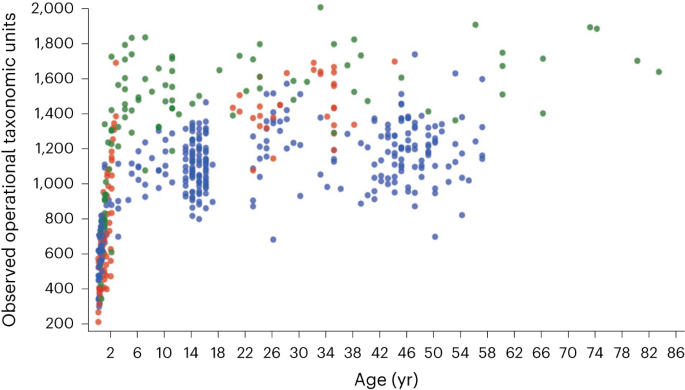
Human microbiome myths and misconceptions
- Select a language for the TTS:
- UK English Female
- UK English Male
- US English Female
- US English Male
- Australian Female
- Australian Male
- Language selected: (auto detect) - EN
Play all audios:

Over the past two decades, interest in human microbiome research has increased exponentially. Regrettably, this increased activity has brought with it a degree of hype and misinformation,
which can undermine progress and public confidence in the research. Here we highlight selected human microbiome myths and misconceptions that lack a solid evidence base. By presenting these
examples, we hope to draw increased attention to the implications of inaccurate dogma becoming embedded in the literature, and the importance of acknowledging nuance when describing the
complex human microbiome.
A.W.W. would like to thank S. Patrick for the original invitation to give a talk on this topic, which inspired the subsequent writing of this article. A.W.W. and the Rowett Institute receive
core funding support from the Scottish Government’s Rural and Environment Science and Analytical Services division. L.H. is funded by Alzheimer’s Research UK, Healthcare Infection Society,
Diabetes UK, Cancer Research UK and the European Union’s Horizon 2020 research and innovation programme under grant agreement 874583. This publication reflects only the authors’ views and
the European Commission is not responsible for any use that may be made of the information it contains.
Microbiome, Food Innovation and Food Security Research Theme, Rowett Institute, University of Aberdeen, Aberdeen, UK
Department of Biosciences, Nottingham Trent University, Nottingham, UK
Nature Microbiology thanks Ami Bhatt, Fergus Shanahan and the other, anonymous, reviewer(s) for their contribution to the peer review of this work.
Publisher’s note Springer Nature remains neutral with regard to jurisdictional claims in published maps and institutional affiliations.
Springer Nature or its licensor (e.g. a society or other partner) holds exclusive rights to this article under a publishing agreement with the author(s) or other rightsholder(s); author
self-archiving of the accepted manuscript version of this article is solely governed by the terms of such publishing agreement and applicable law.
Anyone you share the following link with will be able to read this content:
